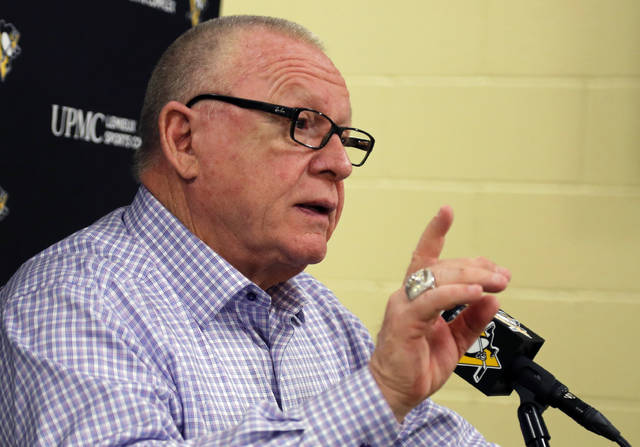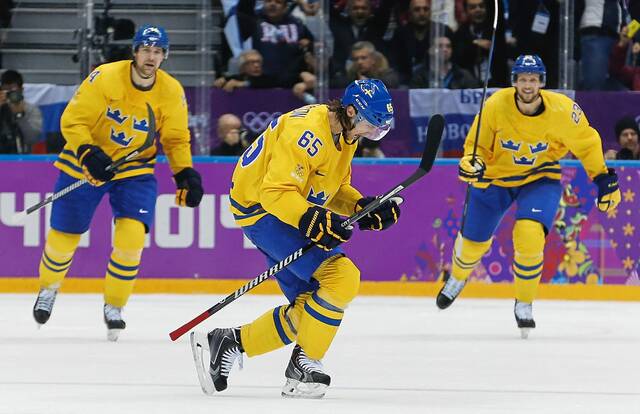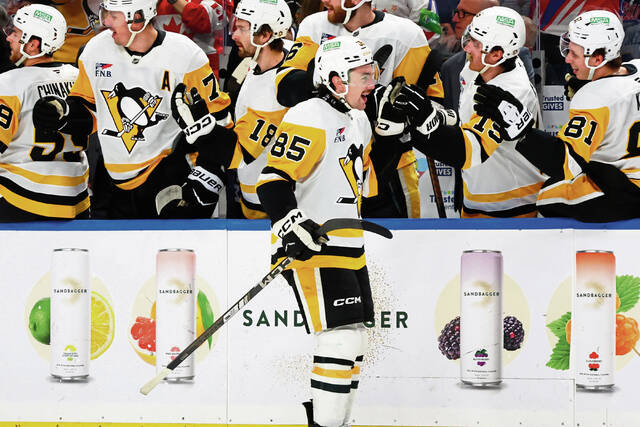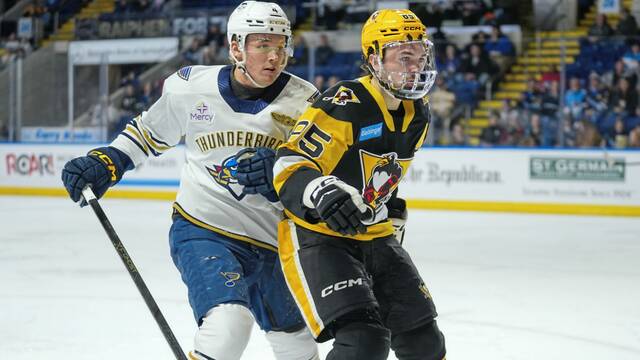With the Penguins tied for the eighth and final playoff spot in the Eastern Conference entering Tuesday’s game, general manager Jim Rutherford wasn’t able to make any magical trade-deadline deals.
Rutherford added much-needed toughness in Erik Gudbranson, but the Penguins dealing for defensemen at the NHL trade deadline was a sorry sign, as it was once a position of strength.
When the Penguins started the season with Kris Letang, Brian Dumoulin, Justin Schultz, Jack Johnson, Olli Maatta, Jamie Oleksiak, Juuso Riikola and Chad Ruhwedel, it was considered the kind of defensive depth that would allow them to use one (or more) as trade bait.
Instead, Rutherford continues to trade away his mistakes and dig the Penguins deeper into a hole.
1. Getting abused
After complaining during the 2017 Stanley Cup playoffs that his star players were being “abused,” Rutherford traded center Oskar Sundqvist and a first-round draft pick to St. Louis for noted tough guy Ryan Reaves in June.
Reaves averaged only 6 minutes, 45 seconds of ice time over 58 games with the Penguins, and Rutherford traded him as part of a three-way deal for Derick Brassard.
Where Sundqvist has become a solid fourth-line center and top penalty killer for the Blues, Reaves helped the Vegas Golden Knights reach the Cup Final.
In Gudbranson, the Penguins traded for a player Rutherford described as a “real heart-and-soul guy” and a “good dressing-room guy” with “good character” who can “protect our players.”
2. Bottom-six busts
The Penguins might have the NHL’s best 1-2 combination at center in Sidney Crosby and Evgeni Malkin, but finding a third-line center has been an issue since Nick Bonino left.
After Greg McKegg flopped, Rutherford traded for Riley Sheahan. When Sheahan showed to be better suited for the fourth line, Rutherford made the trade-deadline deal for Brassard.
Instead of solving the Penguins’ problems, it caused more. Brassard battled through an injury last season, but the biggest block was mental. Brassard was unwilling to accept his role as a third-line center instead of his customary top-six status.
No wonder Rutherford received rave reviews when he traded Sheahan and Brassard for Nick Bjugstad and Jared McCann, instead of getting grilled for Brassard being a bust.
3. Getting defensive
By including Ian Cole in the Brassard trade, the Penguins gave up a steady, stay-at-home defenseman willing to block shots and kill penalties.
But Cole was a pending free agent, and the Penguins had no plans to sign him to an extension. Instead, Rutherford signed defenseman Jack Johnson to a five-year, $16.25-million contract. Johnson has been underwhelming, and it should be worrisome the Penguins are tied to the 32-year-old for four more seasons.
The last time Rutherford traded for a big, tough defenseman, the Penguins got Jamie Oleksiak from Dallas for a fourth-round pick in December 2017. Thirteen months and 83 regular-season games later, they sent Oleksiak back to the Stars … for a fourth-rounder.
4. Ho-hum reaction
Rutherford’s moves Monday were met with mostly a ho-hum reaction, not so much because of what he got but what little he had to give up.
Trading Tanner Pearson produced a shrug, as he had nine goals and 14 points in 44 games. But to get Pearson the Penguins gave up a glue guy, penalty killer and proven playoff performer in Carl Hagelin, who was traded to Washington at the deadline.
So the Penguins turned Hagelin, whom they might have to face in the playoffs, into Pearson, whom they turned into Gudbranson. The key is Gudbranson should be an upgrade over Oleksiak in protecting players, given he has beaten Tom Wilson in a fight.
Unfortunately, that’s become important.
5. Benefit of the doubt
Rutherford has earned the benefit of the doubt and deserves credit for trades that have worked out well.
That’s especially true for sending the disappointing Daniel Sprong to Anaheim for defenseman Marcus Pettersson but also for flipping Brassard and Sheahan to Florida for Bjugstad and McCann.
Rutherford inherited a team strong up the middle, and adding Phil Kessel and Justin Schultz proved masterful when the Penguins won back-to-back Stanley Cup championships.
But it’s Rutherford’s job to supply their supporting cast, and that’s where he has shown some shortcomings. The Penguins have to hope his latest deal is enough to get them into the playoffs, and keep them healthy enough to make another run.








